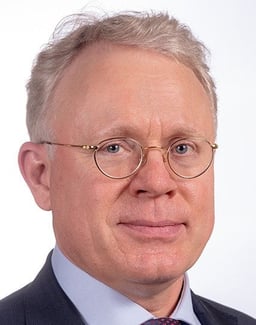Market Overview
By Brucher Thieltgen & PartnersThe Grand Duchy of Luxembourg, located in the heart of Europe, is recognised as one of the most dynamic and attractive financial and legal centres in the world. Despite its modest size, this small Western European country bordered by Belgium, France and Germany plays a major role on the international stage thanks to its innovative financial centre, prosperous economy, political stability and solid legal framework. Luxembourg is a founding member of the European Union, the Euro zone and the Organisation for Economic Co-operation and Development (OECD), giving it a strategic position in the European and global economic landscape.
The financial centre of the Grand Duchy of Luxembourg stands out for its expertise in asset management and its innovative environment, making Luxembourg a key player on the global financial scene. Luxembourg is the world's second largest investment fund centre after the United States. Luxembourg's financial sector offers a wide range of services, including private banking, insurance, wealth management, financing and private equity. The country is also a leader in financial innovation, with a vibrant fintech ecosystem and growing adoption of advanced financial technologies. Luxembourg's highly skilled and multilingual workforce attracts talent from all over the world, strengthening the competitiveness of the financial sector.
Luxembourg's legal framework
Luxembourg's legal system is characteristic of the country, being a skilful amalgam of the various neighbouring legal systems, Luxembourg having, in the 19thand 20thcenturies, taken the option of drawing the best from each world. Its legal system is based on civil law, with a Civil code inspired by the Napoleonic Code, in place since 1804. There are therefore French influences on civil law and civil procedure, but also Belgian influences, particularly in commercial and company law, since in the 19th century commercial relations were more developed with Belgium than with France. Tax law, on the other hand, is of German origin.
Since the beginning of the 21st century, Luxembourg law has begun to take on its own autonomy, since legislative reforms in France and Belgium have amended certain laws, but Luxembourg has not followed suit. Moreover, in the interests of competitiveness, Luxembourg has been able to develop its legal environment to make it attractive to international financial players. So we are now at a rather interesting point where Luxembourg law has really taken off, with an entirely original result, at the crossroads of different paths in the same way as the development of the financial centre, which has made Luxembourg the largest centre for investment funds in Europe.
Luxembourg's legal system is sound and honest. Luxembourg is at the forefront of the fight against money laundering and the financing of terrorism, which influences the work of all those involved in the financial centre, of course, but also the legal sector. These developments also help to limit corruption within the sector and keep it robust thanks to this cooperation between all the players.
https://mj.gouvernement.lu/en/dossiers/2020/lutte-blanchiment.html
Players in the Luxembourg legal sector
Luxembourg has a highly qualified and multilingual legal community, made up of magistrates, lawyers, notaries, bailiffs, jurists and tax advisers.
The courts
The judicial system is similar to what is in place in neighbouring countries (Belgium and France), but the number of courts is proportionate to the size of the country. At civil and commercial level, the structure is classic, with a Cour de cassation at the top, followed by a single court of appeal and two district courts (in Diekirch and Luxembourg). The District of Luxembourg has two Justice de Paix, in Esch-Sur-Alzette and Luxembourg.
The main challenge for these courts is human resources: judges and court clerks must be of Luxembourg nationality. In order to address this challenge, a new legislative framework was introduced in December 2022, setting up judicial referendaries who are lawyers, not necessarily of Luxembourg nationality, but who must be proficient in the 3 administrative languages (including Luxembourgish), who will assist the judges in preparing judgements, carrying out research, etc, in the same way as the model in place at the Court of Justice of the European Union (CJUE). The Ministry is also launching a major recruitment campaign for lawyers, magistrates and legal assistants. This is a real challenge, especially as business law and everything that stems from the international financial centre require a high level of qualifications, skills and multilingualism to adapt to the needs of international companies.
Arbitration: a key tool for international companies
The country recently amended in 2023 its law governing arbitration, a move that demonstrates the country's desire to position itself increasingly as an arbitration centre. Its international character, multiculturalism and neutrality, as well as the key skills present in Luxembourg's legal sector, such as the multilingualism of its judges and the various players involved, make Luxembourg a prime location for developing this method of dispute resolution on an international scale.
https://www.luxarbitration.lu/
Expertise and professionalism of lawyers
There are just over 3,700 lawyers registered in Luxembourg. This is a large number given the size of the country, and they are all very close, which enables them to be in regular contact and to share their knowledge and experience. Together, they make Luxembourg law evolve in practice and play an active role in shaping the law.
[6 June 2024: 3,781 lawyers - https://www.barreau.lu/wp-content/uploads/2024/07/Echo-du-Barreau-Numero-10-Juillet-2024-VERSION-FINALE.pdf]
In Luxembourg, political institutions seek to develop and maintain these close relationships with market players, without compartmentalisation. These exchanges between politicians and law firms make it possible to take account of the opinions of the various market players right from the process of drafting legislation. This highly effective relationship can be seen at various levels and in a number of bodies, such as the Chamber of Deputies or certain committees at the CSSF (Commission de Surveillance du Secteur Financier - a public institution that supervises professionals and products in the Luxembourg financial sector - https://www.cssf.lu/en/), where several positions are held by lawyers, enabling a good flow of information, even within institutions.
The legal profession can be practised in a variety of ways. Some choose to work independently, on their own, with a more general focus, often on private clients. Others join larger firms, such as international law firms with offices in Luxembourg (for example, A&O Shearman, Herbert Smith or Simpson Thacher), or leading independent law firms such as Elvinger Hoss Prussen or Arendt & Medernach. There are also medium-sized national firms such as Kleyr Grasso, Molitor Avocats à la Cour and Brucher Thieltgen & Partners, as well as regional structures, particularly in the Benelux area (such as Loyens & Loeff and NautaDutilh). Within these organisations, some lawyers may opt for salaried status, which offers them better social protection and a range of benefits.
The important role of associations
Associations are an important category of players in the Luxembourg legal market. Whether they are associations of lawyers, such as the ALJB - Association luxembourgeoise des Juristes de droit Bancaire (www.aljb.lu), or professional associations such as the Alfi - Association Luxembourgeoise des Fonds d'Investissement (www.alfi.lu) or the ABBL - Association des Banques et Banquiers, Luxembourg (www.abbl.lu), these associations play an active part in the country's legal workings, especially in comparison with other jurisdictions. They produce an enormous amount of doctrine and legal elements that are then referenced to give opinions on draft legislation. They are real sources of law, which again demonstrates the importance and effectiveness of the proximity of all the players in the sector. This is a real advantage for Luxembourg.
Access to justice in Luxembourg and to the profession
Given the large number of lawyers registered with the Luxembourg Bar, the country benefits from a certain ease of finding a lawyer, and the system in place is fairly traditional with a system of legal aid. Compared with neighbouring countries, this assistance is relatively generous, meaning that it enables people with real financial difficulties to have access to a lawyer who they do not pay to defend their interests. This system can certainly be improved but, compared with other European countries, Luxembourg is well positioned.
There are a number of possible routes into the legal profession in Luxembourg. The first, and most traditional, is to obtain a law degree in another European country and then follow the complementary courses in Luxembourg law (CCDL) organised by the Ministry of Justice. These courses are designed to standardise everyone's knowledge of the specific aspects of Luxembourg law. These lawyers-to-be are then sworn in, followed by a internship period, culminating in a final exam to become Avocats à la Cour. In practice, this standard curriculum is supplemented by many other entry points to the profession. European lawyers can register on different lists to set up in Luxembourg (avocat liste IV or directly avocat liste I), depending on the possibilities they have according to their training, country of origin, etc. This wide variety of career paths is a real advantage compared with other countries, which makes Luxembourg all the more attractive for practising this profession.
https://www.barreau.lu/le-metier-davocat/devenir-avocat/presentation/#0
In this context, the University of Luxembourg is also an increasingly important legal player. Although it is still under construction, it is already attracting many students who are looking to specialise after their first degree in law and complete their course with a master's degree in European banking and finance law, for example, an option that is very specific to the Luxembourg market.
https://www.uni.lu/fdef-fr/research-departments/departement-droit/
In addition, the professors organise events, share knowledge via conferences and training courses open to the profession, write books and draft doctrine, etc, thereby influencing the entire legal world in Luxembourg.
Flexibility, innovation and financial centre
The Luxembourg legal sector stands out for its flexibility and innovative spirit. Luxembourg was one of the first countries to adopt laws encouraging investment in financial technologies (FinTech) and cryptocurrencies. In addition, the country offers a diverse range of legal structures, such as venture capital companies, investment funds and holding companies, allowing investors to choose the structure best suited to their needs.
The Luxembourg financial centre has motivated the country in a fairly intelligent way, certainly with Belgian and French inspiration, the Civil code and Belgian company law, to create new tools, sometimes also influenced by Anglo-Saxon practice, such as the special limited partnership, to meet the needs of the financial centre, investment funds, private equity, etc as precisely as possible.
Luxembourg law is also characterised by a high degree of contractual freedom. The aim has always been, particularly in business law, to allow economic players a great deal of contractual freedom and thus avoid being locked into overly rigid schemes.
Emerging trends and future developments
Thanks to its financial centre, banking and financial law remains the leading area of law under development in Luxembourg. Alongside this, the development of legislation in the field of green finance and, more generally, ESG, is also one of the main themes being developed in Luxembourg. But this small country is also making a name for itself in Space Law, where Luxembourg is a notable player, although this remains a niche area.
Comparative law is also very important, thanks to Luxembourg's position in many international relations and its role in international treaties and agreements. As a founding member of the European Union and the seat of various institutions, including the European Court of Justice, Luxembourg is still one of the first countries to transpose European directives and to be positioned as a positive player in the international arena.
Artificial intelligence is of course one of the current topics of discussion within the Bar. The players in the sector are starting to adopt it at different levels in their respective roles. The main obstacle will undoubtedly be that Luxembourg law and the law of artificial intelligence wish above all to ensure the protection of users and their data before allowing further developments in use. The second challenge linked to AI lies in the volume of exploitable data. Luxembourg is in average with its neighbours in the development and use of AI, but will the reference resources be sufficient to continue to produce relevant results?



